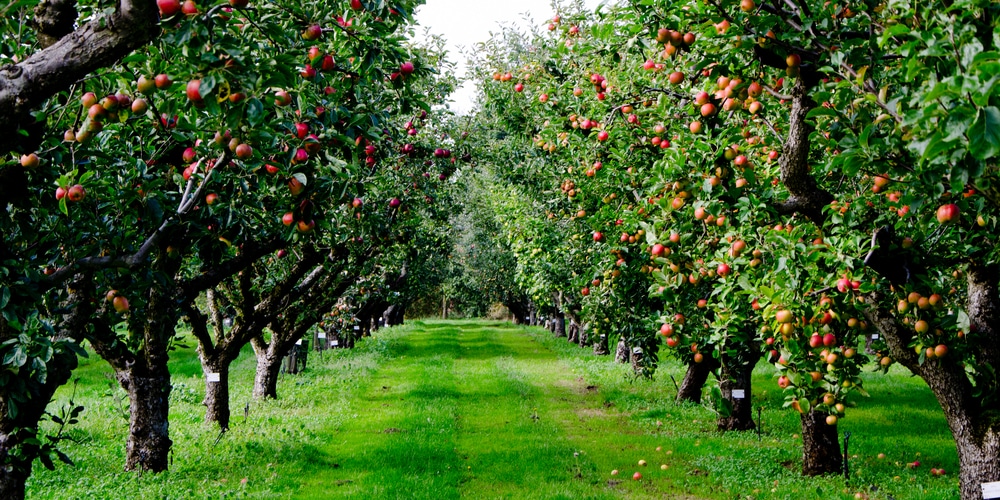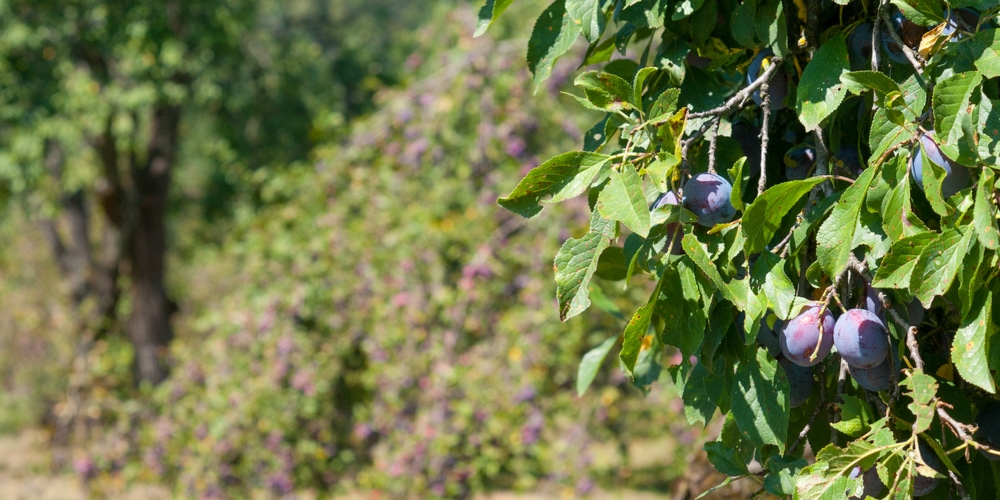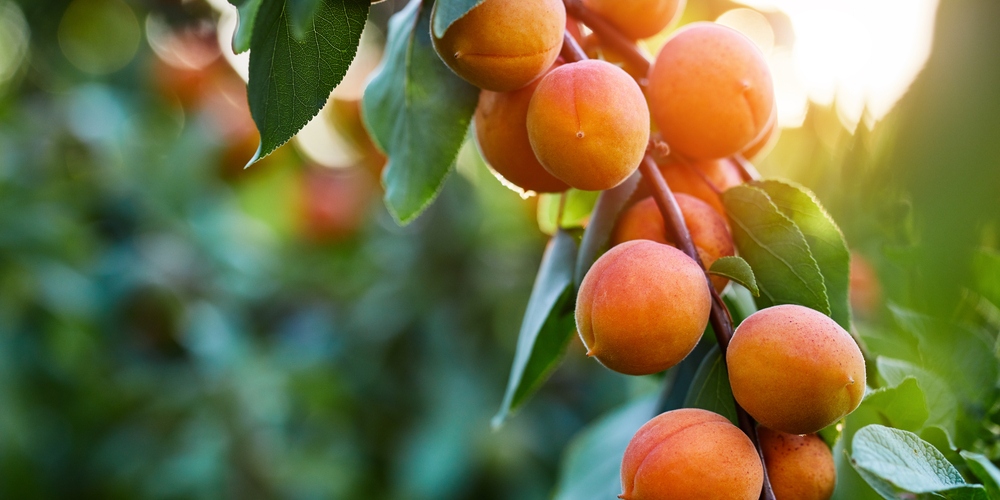Who doesn’t like the idea of adding a fruit tree to your garden? Not only are they beautiful, but they also add an elegant touch to any garden. Plus, they can help you create shade, perfect for the warmest months of the year.
While it doesn’t have to be complicated, planting a fruit tree is not as easy as simply selecting one that you like. You must know about what trees work best for your hardiness zone and what soil, sunlight, and watering conditions you must ensure for them to thrive.
If you are curious to learn which trees can grow well in zone 6, you’ve landed in the right place. This “Zone 6 Fruit Trees” guide includes some of the best plants you can grow in your hardiness zone to get excellent results and healthy crops.
Zone 6 Fruit Trees
Luckily, if you live in zone 6, you can select from a wide array of options. This region’s mild climate is one of the best for growing fruit trees. Its cold winters and warm summers create the best conditions for harvesting crops.
Apple Trees
One of the most versatile plants, the apple tree works well in various climate conditions. While you can’t grow all varieties in zone 6, you will get excellent results planting Gala, McIntosh, Honeycrisp, and Lodi Apples in your garden. These trees will give you the best results in full sun, so make sure you plant them somewhere they will receive at least 6 hours of direct sunlight per day.
Also, keep the soil moist and add some mulch around the base of your tree to increase water retention. Don’t forget that most apple trees need pollen from other trees to produce fruits.
To allow cross-pollination to occur, you will have to plant more than one individual in your garden. To prevent the spread of diseases, plant your trees in locations with good airflow, which will allow their leaves to dry quickly after watering or rain.
Pear Trees
Another excellent fruit tree option for zone 6 is, without a doubt, pear trees. Almost all varieties do well in zone 6 climate, but Williams, Bosc, Bartlett, and Anjou are the favorite choices among most gardeners.
Taking care of a pear tree isn’t complex. However, you must ensure you plant your trees in well-drained soil and under full sun. Keep in mind that most varieties will grow large: allow them for adequate space to develop and locate them in suitable locations.
Plum Trees
In zone 6, you’ll be able to grow most plum trees with no issues. The trees stay small and are perfect if you don’t have much space in your garden. However, some varieties like Santa Rosa and Stanley require more than one tree to pollinate and produce fruits.
Make sure you plant your trees in fertile soil. Ensure the necessary amendments if your ground is poor in nutrients.
Cherry Trees
While not all cherry trees work well for zone 6, species such as Benton, Richmond, Stella, and Sweetheart will give you satisfactory results. Cherries are rare treats and not as easy to grow as other fruits.
These trees are vulnerable to frost damage and susceptible to attacks from harmful pests. You will have to keep an eye out for insects and take prompt actions to limit issues with your trees. Also, you must keep the soil moist: add some organic mulch to get better results.
Peaches
Peaches do better in warm zones. However, with proper care and precautions, you can successfully grow these delicious and juicy fruits even in zone 6.
Varieties with tolerance to low temperatures such as Elberta, Candor, Haleheaven, Madison, or Reliance will do well in your region. Place your tree under full sun in moist but not wet soil.
Apricots
Like peaches, apricots grow best in Southern states. However, that doesn’t mean you can’t grow them if you live in zone 6.
Indeed, there are varieties tolerant to low temperatures that will thrive in your region. Apricots are self-pollinating, meaning you won’t have to plant numerous individuals to get fruits.
Zone 6 Fruit Trees: The Bottom Line
Zone 6 is a perfect region to grow fruit trees. It’s a little cooler than zone 7b, You might not get good results with lemons or oranges, but you will be satisfied planting apples, pears, or other plants we included in this list.
Related Article: When to Plant Fruit Trees in South Carolina?





